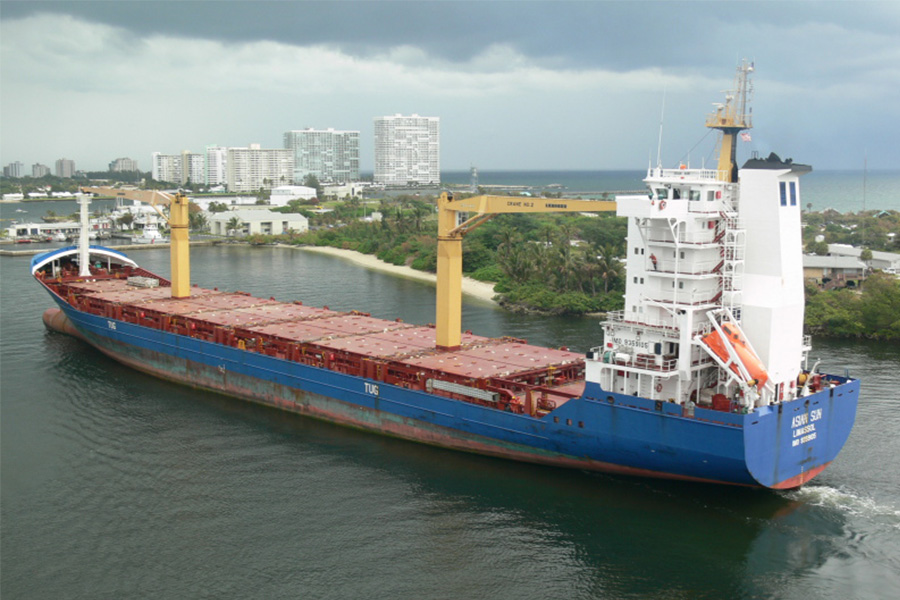
Radar | Jan 07,2023
Nov 13 , 2021
By HAWI DADHI
A public corporation established to soak up the debt of state-owned enterprises has settled 34.1 billion Br in arrears owed by three such companies.
The former Metals & Engineering Corporation (MetEC) – now the Ethio-Engineering Group (EEG) – the Ethiopian Electric Utility (EEU) and the Chemical Industry Corporation owe the state-owned Commerical Bank of Ethiopia (CBE) billions of Birr, including 16.4 billion Br by the EEG. It is a small share of the 540 billion Br domestic debt Ethiopia has this year, double the amount from four years ago.
Established earlier this year with a capital of 570 billion Br, the Liability & Asset Management Corporation (LAMC) absorbs debt owed by state-owned enterprises to creditors. It operates under the auspices of the Ministry of Finance and tapping the Industrial Development Fund (IDF) resources, also administered by the Ministry. The Fund comprises proceeds from privatisation and the dividends collected from the state-owned enterprises.
The Fund is channelled to the Corporation to service debts by state enterprises, according to Hinjat Shamil, technical advisor for economic reforms at the Finance Ministry.
The 850 million dollar license fee paid by the Safaricom-led consortium earlier this year was redirected to the Corporation, disclosed Hinjat.
Over the past three years, the massive debt in the books of state enterprises has become a concern for government officials. The stock of domestic and external loans that went into paying for megaprojects brought a balance of payments crisis, putting the external debt to GDP ratio above the median level of 26pc for developing economies. The Grand Ethiopian Renaissance Dam (GERD), public housing, sugar factories, Yayu Multi-Complex Industries, and railway construction have taken up these loans.
These enterprises borrow from domestic sources through corporate bonds and government-guaranteed loans, mainly from the CBE.
Mulualem Getahun runs the Corporation and the board of directors is chaired by Tegegnework Getu, a retired UN bureaucrat who also serves as a board chairperson of the state-owned Development Bank of Ethiopia (DBE). The Corporation signed an agreement with Abie Sano, president of the CBE, in August this year to settle the debts of the six public companies reaching 780 billion Br, representing 28pc of the GDP. Mulualem's next commitment is to pay off over 340 billion Br in debt owed by the EEP, ERC and the Sugar Corporation.
The next batch of debt will partly be serviced with the money obtained from the sale of the second telecom license, Mulualem disclosed to Fortune.
Cash flows from the partial privatisation of the Ethio telecom and proceeds from the sale of several sugar factories will also go into the Fund, says Mulualem, who had previosuly served as a deputy CEO of the Railway Corporation.
Pundits see the attempt by the authorities in servicing public debt from one-off proceeds as unsustainable. They have to rationalise the viability of state enterprises to enable them to service their debts, according to Abdulmenan Mohammed, a financial analyst.
"The other option is privatising them and using the proceeds to pay the debts," he said.
The state enterprises are not making direct cash contributions to the debt payments. However, they are expected to chip in indirectly to the Fund. The Corporation is also able to engage in revenue-generating activities, including investments in underutilised public assets to beef up revenues. It is an approach chosen by policymakers who are convinced it ensures debt servicing stays on track without burdening the public budget, reveals a report produced by experts of the Ministry of Finance.
The Corporation is not expected to make a one-off payment of the debts, according to Hinjat.
"The payments are made according to the debt service schedule agreed upon by the Corporation and the CBE," she told Fortune. The various debts have different repayment schedules, which can stretch up to 16 years.
A fifth of the debts owed by the EEP is decided to be transferred to the Corporation, while the railway and sugar corporations will see all of their domestic and external debts moved to the books of LAMC.
Of the three public enterprises that saw their debts partially settled last week, the Ethio-Engineering Group has the largest share, amounting to 74 billion Br. Its remaining debt of 57 billion Br is yet to be paid off. Hiwot Mosisa, head of the Ethio-Engineering Group, disclosed the enterprise is in discussion with officials of the Ministry to draw strategies to settle the remaining debt. The Group was re-incorporated two years ago. Since its formation in 2011 under MeTEC, the company espoused to have led Ethiopia's industrialisation drive was mired by allegations of inefficiency, waste and corruption.
"We've almost completed restructuring the Group based on the reform direction given," Hiwot told Fortune.
The Chemical Industry Corporation, formed in 2013 under the then Ministry of Industry, is also undergoing reforms. It generated over half a billion Birr in revenues over the first quarter of this fiscal year.
The state-owned CBE has seen liquidity levels improve following the start of payment, disclosed Muluneh Aboye, vice president of credit management at the Bank.
“We expect more in debt service based on the schedule agreed," Muluneh told Fortune.
Abdulmenan urges the CBE to subject the state enterprises to the same credit risk assessment procedures as private borrowers when applying for loans. The expert cautions that the bank should be also subjected to the same regulatory rules as private commercial banks.
"This reduces overexposure to a single borrower, mitigates bad loans, capitalises the CBE, decreases systematic risk and avoids the kind of enormous debts the Corporation shoulders," said Abdulmenan.
PUBLISHED ON
Nov 13,2021 [ VOL
22 , NO
1124]

Radar | Jan 07,2023

My Opinion | Feb 16,2019

Fortune News | Apr 22,2023

Radar | Sep 27,2020

Radar | Jul 13,2024

Radar | May 25,2019

Fortune News | Oct 19,2019

Radar | Mar 16,2019

Fortune News | Mar 14,2020

Editorial | Dec 02,2023

Dec 22 , 2024 . By TIZITA SHEWAFERAW
Charged with transforming colossal state-owned enterprises into modern and competitiv...

Aug 18 , 2024 . By AKSAH ITALO
Although predictable Yonas Zerihun's job in the ride-hailing service is not immune to...

Jul 28 , 2024 . By TIZITA SHEWAFERAW
Unhabitual, perhaps too many, Samuel Gebreyohannes, 38, used to occasionally enjoy a couple of beers at breakfast. However, he recently swit...

Jul 13 , 2024 . By AKSAH ITALO
Investors who rely on tractors, trucks, and field vehicles for commuting, transporting commodities, and f...

Oct 25 , 2025
The regulatory machinery is on overdrive. In only two years, no fewer than 35 new pro...

Oct 18 , 2025
The political establishment, notably the ruling party and its top brass, has become p...

Oct 11 , 2025
Ladislas Farago, a roving Associated Press (AP) correspondent, arrived in Ethiopia in...

Oct 4 , 2025
Eyob Tekalegn (PhD) had been in the Governor's chair for only weeks when, on Septembe...